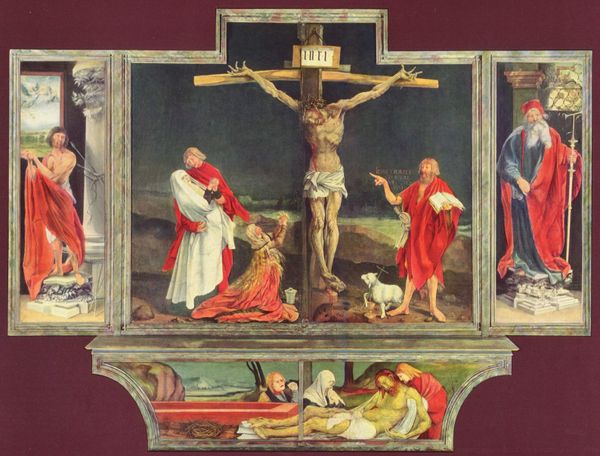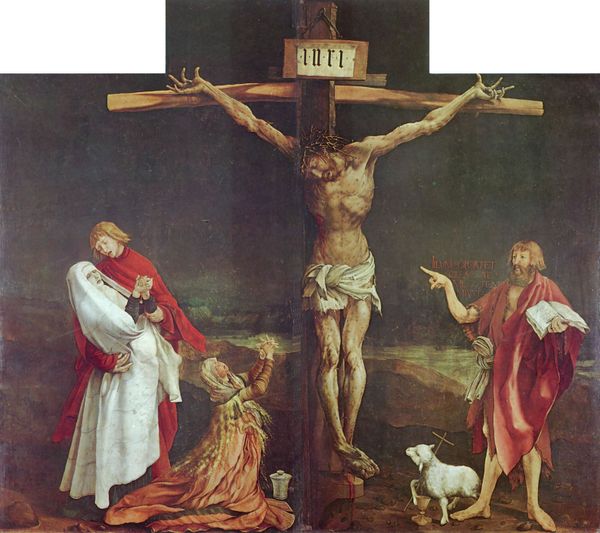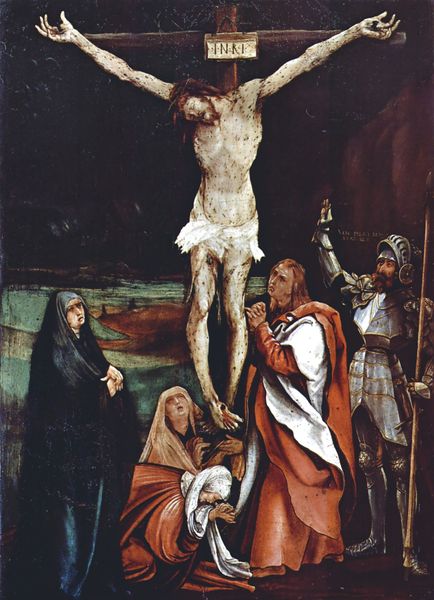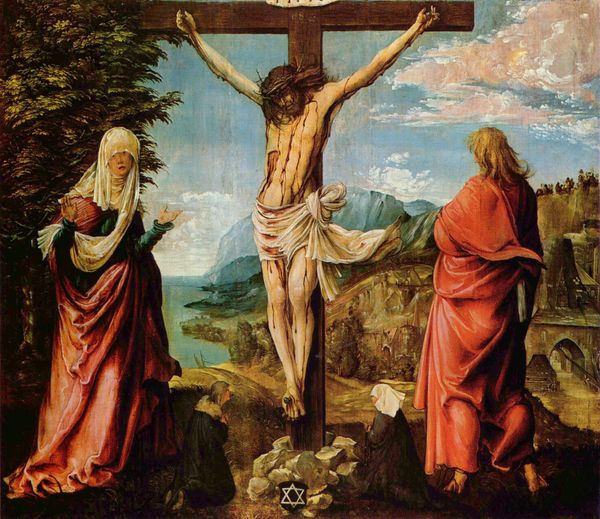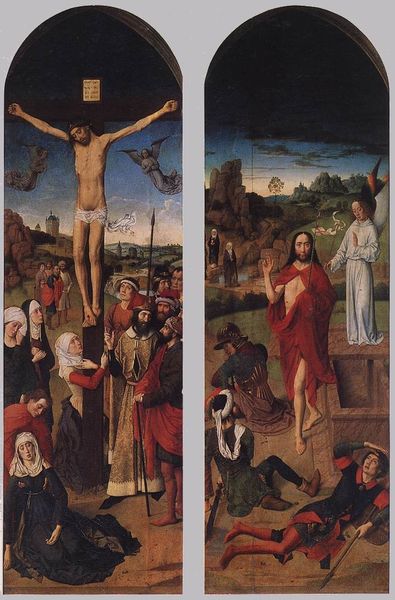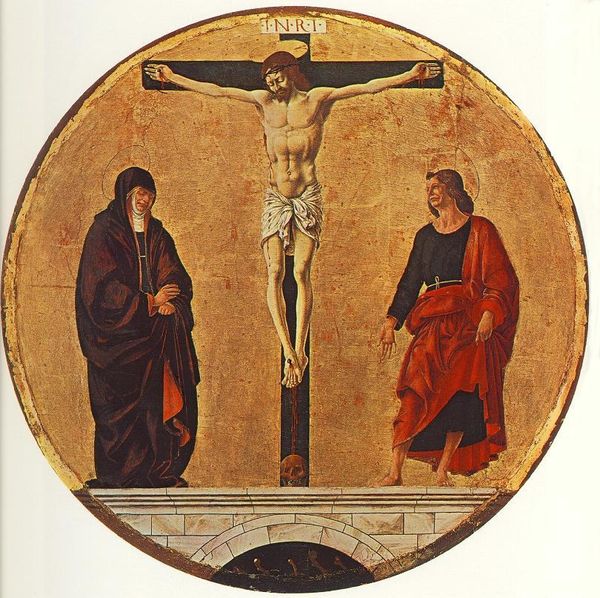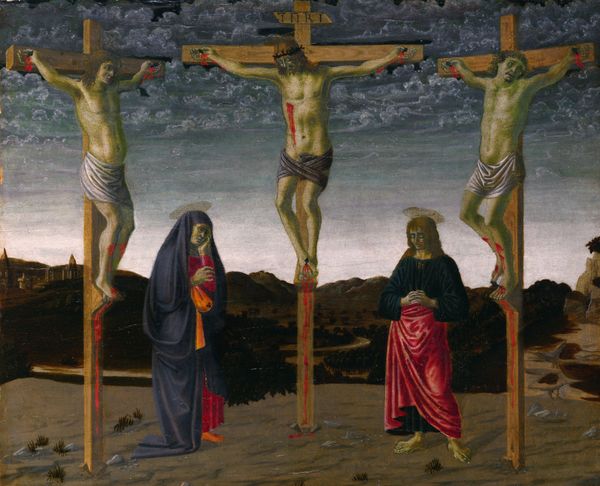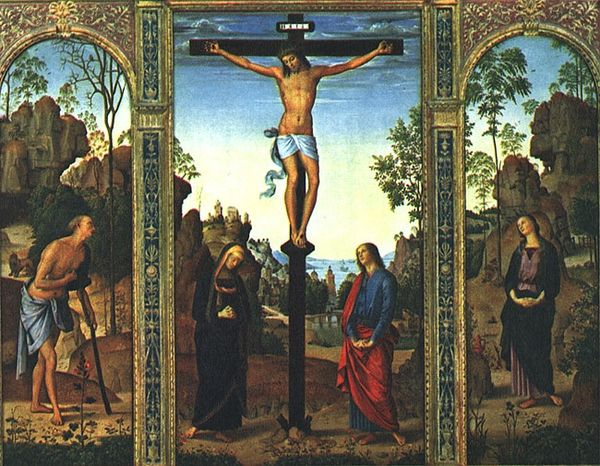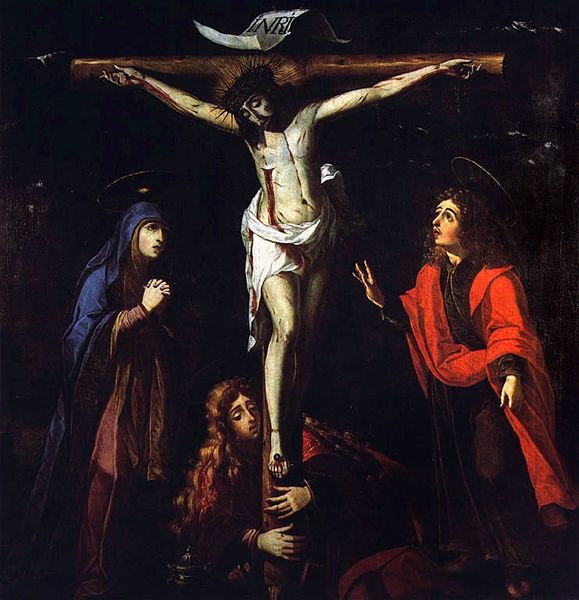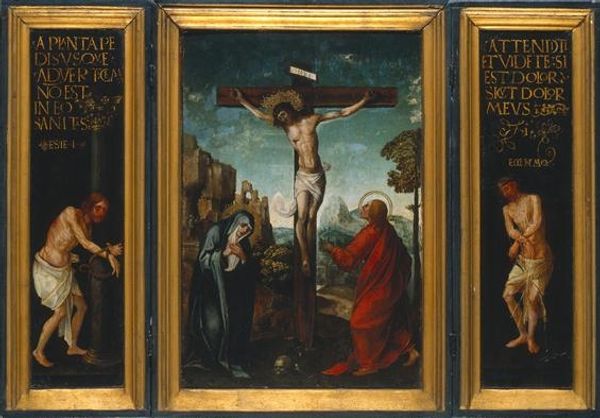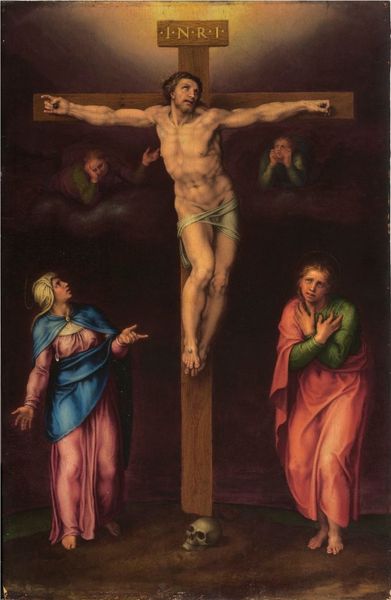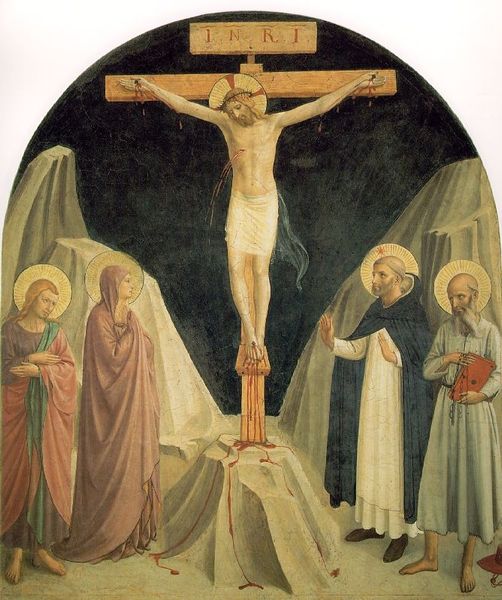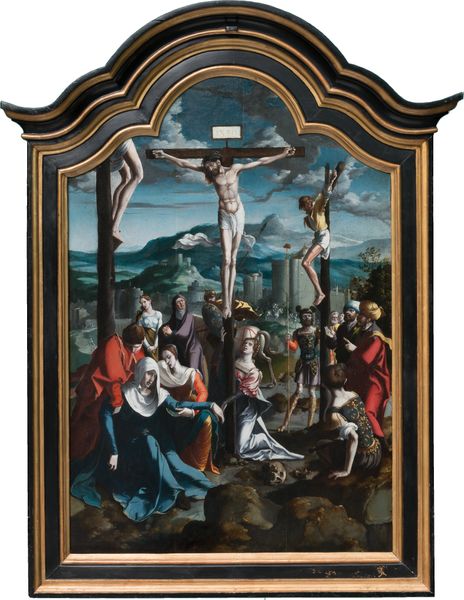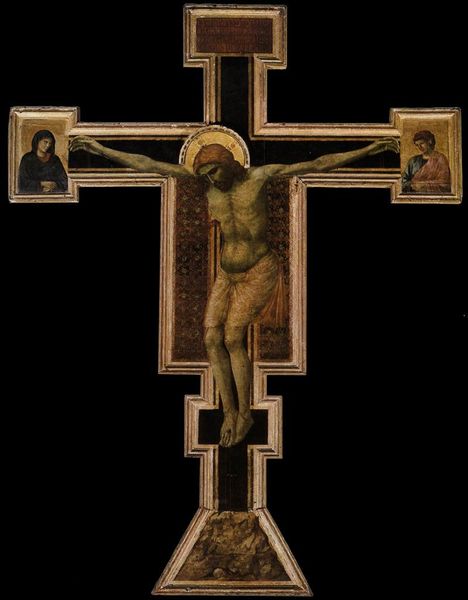
The first view of the altar: St. Sebastian (left), The Crucifixion (central), St. Anthony (right), Entombment (bottom) 1515
0:00
0:00
panel, painting, oil-paint
#
portrait
#
panel
#
allegory
#
painting
#
oil-paint
#
figuration
#
jesus-christ
#
christianity
#
crucifixion
#
history-painting
#
northern-renaissance
Copyright: Public domain
Matthias Grünewald painted this polyptych, with oils, around the early 16th century. At its heart, the crucifixion scene dominates, flanked by St. Sebastian and St. Anthony. The lamb at the foot of the cross, a symbol of Christ's sacrifice, is an ancient motif. But consider how this symbol evolves. In early Christian art, the lamb often directly represents Christ. Here, it stands beside John the Baptist, pointing towards the agonizing figure on the cross. This gesture, this act of pointing, resonates across cultures and epochs. Think of Renaissance depictions of John the Baptist. His pointing finger isn't merely identifying Jesus, it’s directing our gaze, compelling us to bear witness. It speaks to a deep-seated human urge to understand, to connect with the divine, and to share that revelation with others. The emotional intensity conveyed through gesture engages viewers on a profound, subconscious level, embodying a powerful collective memory. We see this symbol, not as a linear progression, but as a cyclical return, each instance layered with the weight of history and the tremor of human emotion.
Comments
No comments
Be the first to comment and join the conversation on the ultimate creative platform.
